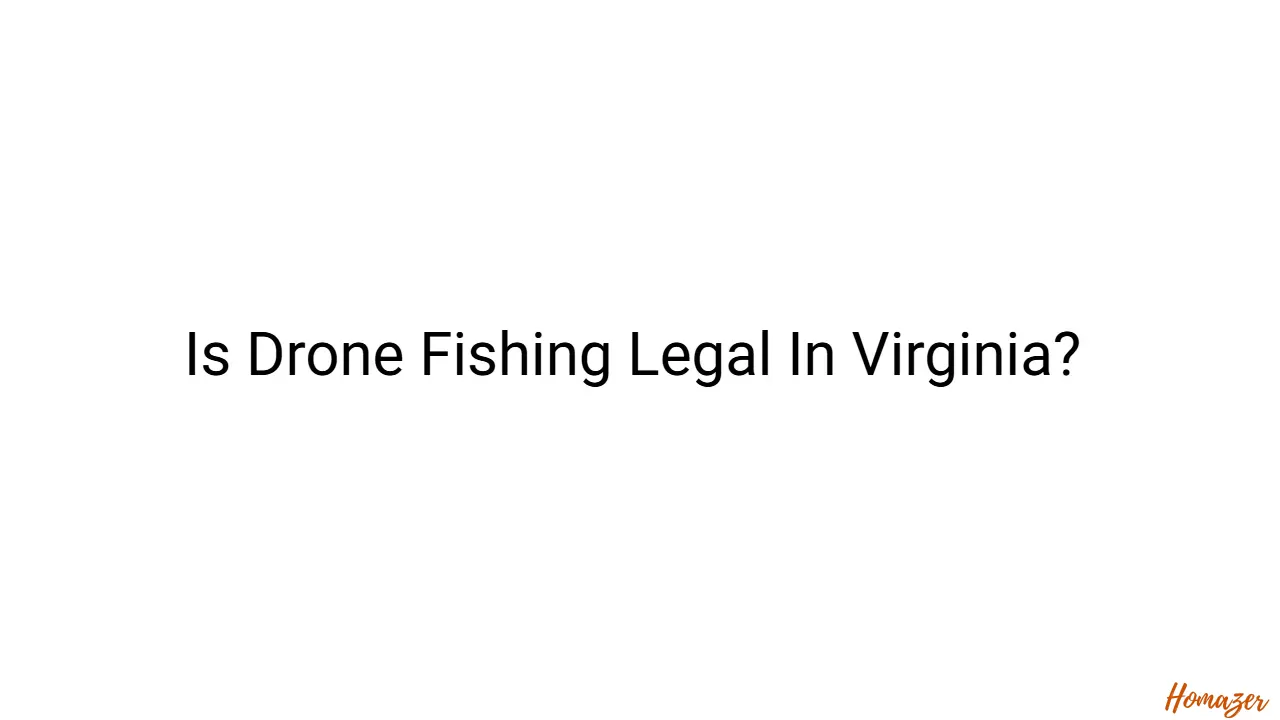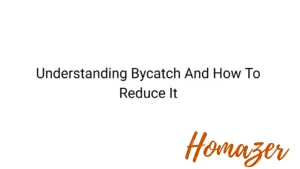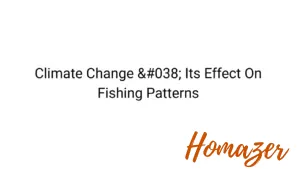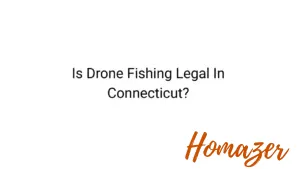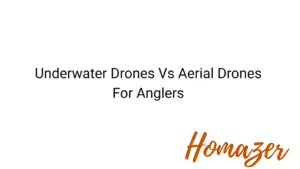Picture this: you’re relaxing by a Virginia lake, rod in hand, sun warming your face, and suddenly, a drone zips overhead, dropping a line right where the fish are biting. Sounds futuristic, right? Well, that scene brings up a big question: Is drone fishing legal in Virginia? Finding out is important before you even think about trying it. This post will explore the ins and outs of fishing with drones, including the rules and regulations in Virginia. By the end, you’ll have a clear view of the legal landscape and what it means for your fishing adventures, helping you avoid trouble and enjoy your hobby safely. This will not only make you wiser about drone fishing but also help you make informed choices, increasing your Time on Page and reducing Bounce Rate!
Drone Use and Regulations for Anglers
Before you even consider using a drone to help with your fishing, it’s essential to grasp the basics of drone use and the rules around them, especially in Virginia. Drones, also known as unmanned aircraft systems (UAS), have become very popular for fun and many other uses, including, of course, fishing. However, their use is controlled by federal, state, and local laws. Virginia has specific guidelines on drone operation, which you must know. This involves considering where you can fly, how high, and whether you need permission. It’s a good idea to research all applicable rules before taking off with your drone and fishing gear.
Federal Aviation Administration (FAA) Rules for Drones
The FAA sets the general rules for how drones can be flown in the United States. These rules apply to recreational users. This means if you are flying your drone for fun, you must follow their guidelines. The most essential of these include registering your drone, keeping it within your sight, and not flying over people or moving vehicles. The FAA also restricts flying in certain areas, such as near airports, and sets limits on flight altitudes. These rules ensure that all drone operations are conducted safely, minimizing risks to other aircraft and people on the ground. When it comes to fishing with a drone, understanding and following FAA rules is extremely important.
- Registration: All drones weighing more than 0.55 pounds (250 grams) must be registered with the FAA. This is a one-time process and provides a unique identification number.
- Visual Line of Sight: You must always keep your drone within your sight. You are not allowed to use binoculars or other devices to extend your vision.
- Altitude Limits: Generally, drones cannot fly higher than 400 feet above the ground, unless specific permission is granted.
- Restricted Airspace: Avoid flying in restricted areas, such as near airports or within designated no-fly zones. Check the FAA’s website or use a drone safety app for current restrictions.
- Operational Rules: Operate your drone during daylight hours. Never fly under the influence of drugs or alcohol.
If you don’t follow these guidelines, you could face penalties, including fines and possible legal action. These rules also extend to the use of your drone for fishing-related activities. For instance, launching a line from your drone over a body of water or maneuvering it to drop bait or a lure counts as operational use. Knowing and sticking to these rules helps prevent accidents and helps protect your drone, your fishing gear, and your fun.
Virginia State Laws Concerning Drones
In addition to federal rules, Virginia has its own set of laws that control how drones are used in the state. These Virginia laws build upon the FAA regulations. These state rules cover things like where you can fly your drone and how you can use it, in addition to addressing any specific limits for using drones near specific areas such as state parks or wildlife areas. The aim is to ensure public safety, protect privacy, and preserve natural resources. If you are serious about drone fishing in Virginia, it’s very important to become familiar with these laws. These laws might affect where you are permitted to fly a drone, as well as how you may use it for fishing. They also may affect the kinds of fishing practices that are permitted.
- State Park Restrictions: Virginia State Parks may have their own rules regarding drone use. Some parks may restrict or prohibit drone flights to protect wildlife or visitor experiences. Always check with the specific park before flying.
- Privacy Concerns: Virginia law includes privacy protections. You should be cautious about recording people or private property without their permission.
- Local Ordinances: Cities and counties within Virginia may also have local rules about drone operation. Always research local laws for the specific area where you plan to fly.
- Wildlife Protection: Avoid disturbing wildlife. Don’t fly drones near nesting sites or in areas where they could bother animals.
- Commercial Use: If you are planning to fish with a drone for commercial purposes, you need to understand the different regulations.
Virginia’s state laws work to balance the usefulness of drones with the need for safety, privacy, and environmental protection. Knowing and keeping to these rules is very important when planning to use a drone for fishing. Failure to follow state laws can lead to penalties and fines.
Legal Status of Drone Fishing in Virginia
So, what’s the deal with drone fishing specifically? Is it legal in Virginia? The simple answer is that the legal position isn’t completely straightforward. While there’s no law that explicitly bans drone fishing statewide, the legality depends on a mix of federal, state, and local rules, as well as how these rules are applied to fishing activities. This includes considering how the FAA rules apply, how state laws may address fishing methods, and any restrictions in local areas or waterways. Understanding how these regulations work together is key to understanding if you can legally use a drone for fishing in Virginia.
Fishing Regulations and Drone Integration
Virginia’s fishing regulations primarily focus on methods of fishing, like the number of lines, bait types, and protected species. The rules don’t directly name drones. But that doesn’t mean that drone fishing is automatically legal. Drones are a recent technology, and laws haven’t always caught up. You must make sure that using a drone for fishing complies with all current angling rules. This includes rules regarding how you can drop your line, the number of lines in use, and any restrictions regarding fishing gear that might be impacted by the use of a drone. Also, any fishing method must comply with wildlife conservation guidelines, protecting habitats and species.
- Line Placement: Make sure your drone isn’t dropping the line in an area where it could create a hazard for other anglers or interfere with boats.
- Number of Lines: Always follow the rules on the number of lines you can have in the water. Using a drone doesn’t change these limits.
- Bait and Lures: Check that the bait or lures you’re using are legal under Virginia fishing laws.
- Protected Waters: Some waters may have special restrictions on fishing methods. Research the rules for the specific location.
- Conservation Practices: Comply with any conservation practices, such as catch-and-release rules or limits on the size and number of fish that can be kept.
While Virginia law doesn’t explicitly state whether drone fishing is legal, it does have guidelines for all fishing methods. You can’t fish with a method that isn’t allowed. It is essential to ensure that your drone use does not violate any angling regulations, particularly those concerning line placement, the number of lines in use, and the type of bait or lures used. When in doubt, checking with the Virginia Department of Wildlife Resources (VDWR) is the best approach to ensuring you stay within the law.
Potential Legal Challenges and Considerations
Even if you try to follow all the rules, there are still some things to be aware of when it comes to drone fishing. The laws may not always be clear. Virginia may not have created specific regulations for drones used for fishing. This ambiguity might bring on some uncertainty. The absence of clear rules can potentially lead to legal challenges. If something were to go wrong, you might find yourself dealing with unclear guidelines, especially if local officials haven’t created clear rules. There are a few things to keep in mind, in addition to general drone and fishing rules.
- Interpretation of Existing Laws: Without specific laws, authorities could interpret existing angling or drone laws to apply to drone fishing.
- Liability: If your drone causes harm or damage (e.g., hitting someone or something), you are likely held accountable. Make sure you have liability insurance.
- Privacy Concerns: Using a drone to observe other people fishing may violate privacy laws. Avoid flying your drone in a way that infringes on others’ privacy.
- Local Ordinances: Local governments may have additional rules about drone use near water bodies or parks. Always look into local rules.
- Enforcement: The way laws are enforced can depend on the jurisdiction and the specific circumstances. It is important to act responsibly.
These challenges highlight the importance of careful planning and being cautious when you’re using a drone for fishing in Virginia. It’s always smart to stay informed about any new rules and to get help from the VDWR if you need to. By taking these steps, you can help reduce potential legal issues.
Best Practices and Safety Tips
Even if you know the rules, drone fishing needs some thought. Safety and responsible behavior are essential. Whether you are a beginner or experienced, following these best practices improves your fishing experience. These tips cover safe drone operation, fishing ethics, and how to minimize any impact on the environment and other people. It will also help you reduce the chances of encountering problems with the law.
Safe Drone Operation
Operating a drone safely is very important for your safety and the safety of others. Flying responsibly helps prevent accidents and makes sure you follow the rules. Safe operation goes beyond just knowing the FAA guidelines; it also requires a good understanding of your drone and the area where you’re flying. Following these practices helps make your drone fishing experience safe and enjoyable for everyone involved. Here are the main safety tips to remember.
- Pre-Flight Checks: Before each flight, inspect your drone. Check the batteries, propellers, and any connections. Make sure everything is in good working order.
- Weather Conditions: Do not fly in bad weather. Wind, rain, and fog can affect your drone.
- Flight Planning: Plan your flight path beforehand. Know the areas you’ll be flying in and any obstructions that could be a problem.
- Battery Management: Always know how much battery life you have left. Bring your drone back before the battery runs out to avoid a crash.
- Emergency Procedures: Know what to do if your drone loses control or has an emergency. Have a plan for how to land it safely.
By making these safety measures a regular part of your drone fishing routine, you can reduce risks and keep your fishing fun, as well as ensure the protection of the people and environment around you. Regularly reviewing these safety tips will also help you be prepared for unexpected situations and provide a better experience. Remember to keep an eye on your drone at all times.
Ethical Considerations and Environmental Responsibility
Besides the legal aspects, ethical considerations are very important when you are fishing with a drone. Acting ethically protects the environment, respects other people, and helps keep your hobby sustainable. Ethical drone fishing involves more than simply obeying the law. It demands that you think about how your actions impact wildlife, the fishing environment, and other people. Here are several ethical guidelines to consider.
- Minimizing Environmental Impact: Avoid disturbing the natural habitat. Don’t leave trash or litter.
- Respecting Wildlife: Do not fly drones near birds’ nests or in areas where they might affect wildlife behavior.
- Privacy: Be respectful of others and the privacy of their property. Do not film or record without permission.
- Sharing the Water: Be respectful of other fishers and boaters. Do not interfere with their activities or create hazards.
- Leave No Trace: Ensure you leave the area as you found it. Clean up any equipment you use.
Applying these ethical guidelines leads to a better drone fishing experience and also helps you be a good steward of the environment and the fishing community. By taking these actions, you help create a responsible approach to the activity. Remember, responsible fishing is not just about catching fish. It also is about preserving our lakes, rivers, and outdoor spaces for the future.
Scenarios and Case Studies
To better understand the real-world implications, let’s look at some examples and case studies. These real-life situations show the range of issues and outcomes that can happen when fishing with a drone. These scenarios are intended to help you learn from others’ experiences, so you can be prepared for different situations. This helps you better assess the risks and opportunities when you’re deciding how to use a drone for fishing in Virginia.
Sample Scenarios
- Scenario 1: You are using a drone to drop a lure on a lake. You follow all FAA rules and keep the drone within your visual line of sight. However, a local park official tells you that drone fishing is not permitted in that particular area of the park. The official cites a local ordinance that prohibits the use of drones over the water.
- Scenario 2: You’re flying a drone to place a line near a fishing spot on a river. As you’re dropping the line, the drone accidentally collides with a power line. The drone drops into the river, and you can’t recover it.
Result: You must stop drone fishing in that area. You may also receive a warning or a fine, depending on the park’s rules.
Result: You are liable for the damage. If the power line is affected, you may face additional charges. You must also report the incident to the FAA and local authorities.
These situations illustrate the need to know all applicable laws and to make sure your drone activities are safe. They also emphasize the importance of having insurance and being ready for a variety of possible scenarios.
Case Studies and Real-World Examples
There aren’t many publicly reported cases of legal outcomes directly related to drone fishing in Virginia. However, we can look at some cases and see what happened. These examples highlight the key legal and practical issues that come up. While each case is different, they show a good view of the common challenges and the importance of responsible operation. These examples show why it’s so important to be careful and follow the rules.
- Example 1: A fisherman in another state was using a drone to place bait in a no-fishing area. Wildlife officers spotted the drone and fishing setup and issued a citation. The fisherman argued that the drone was a tool. The court ruled that the drone was an extension of the fishing activity, so he was found guilty.
- Example 2: A drone operator was using a drone to record other people fishing without permission. Some people complained about privacy violations. Authorities determined that the drone use broke privacy laws. The drone operator received a warning and was ordered to delete the recordings.
- Example 3: A drone flying near a body of water in a state park interfered with wildlife nesting areas. The park authority stopped the drone operation and issued a warning. The operator was told to leave the park.
This case shows that fishing regulations can apply to drones.
This case highlights the significance of privacy considerations when you are using a drone.
This demonstrates the possible environmental and wildlife concerns.
These case studies highlight the importance of knowing and complying with all rules, keeping the safety of other people and animals in mind, and respecting privacy. By learning from these examples, drone anglers can improve their methods and follow the rules.
Frequently Asked Questions
Question: Is drone fishing explicitly legal in Virginia?
Answer: No, there isn’t a specific law that either permits or bans drone fishing statewide. Its legality depends on adhering to all the other drone and fishing rules in Virginia.
Question: What federal laws apply to drone fishing in Virginia?
Answer: FAA regulations are key. You must register your drone, keep it in sight, and follow altitude and airspace restrictions.
Question: Are there any Virginia state laws that affect drone fishing?
Answer: Yes, Virginia state laws cover where you can fly, privacy concerns, and general drone usage, as well as considerations for state parks and wildlife protection.
Question: What should I do if I am unsure about the rules for a specific location?
Answer: Always check with the local authorities or the Virginia Department of Wildlife Resources (VDWR) for up-to-date information and any specific restrictions.
Question: What are the main ethical considerations for drone fishing?
Answer: Ethical considerations include minimizing environmental impact, respecting wildlife and the privacy of others, and sharing the fishing area responsibly.
Final Thoughts
In the end, while the allure of using drones for fishing in Virginia is undeniable, it’s essential to approach the practice with caution and knowledge. The legal landscape is not crystal clear; there’s no specific law explicitly permitting or prohibiting drone fishing. Instead, your actions must comply with federal regulations from the FAA and state laws about drone use. Plus, you need to follow any local ordinances that might affect where and how you can operate. Virginia’s state fishing regulations, which address line placement and bait restrictions, also play an important role, influencing how you set up your drone and tackle. Understanding these different layers of rules is the first step to staying on the right side of the law. Safety is another major key. If you are preparing to fish with a drone, always ensure your drone is in good working order, watch the weather, and respect the privacy of others.
So, the takeaway is simple: research and follow all rules. Be aware of the risks, and prioritize safety and ethics in every flight. By doing this, you’re not just avoiding legal trouble. You’re also ensuring that drone fishing, if you choose to do it, is a responsible and enjoyable activity for everyone. Keep checking the rules because they may change. Stay informed, stay safe, and enjoy the adventure. Make sure your fishing experience is rewarding, while also respecting the law and the environment.

